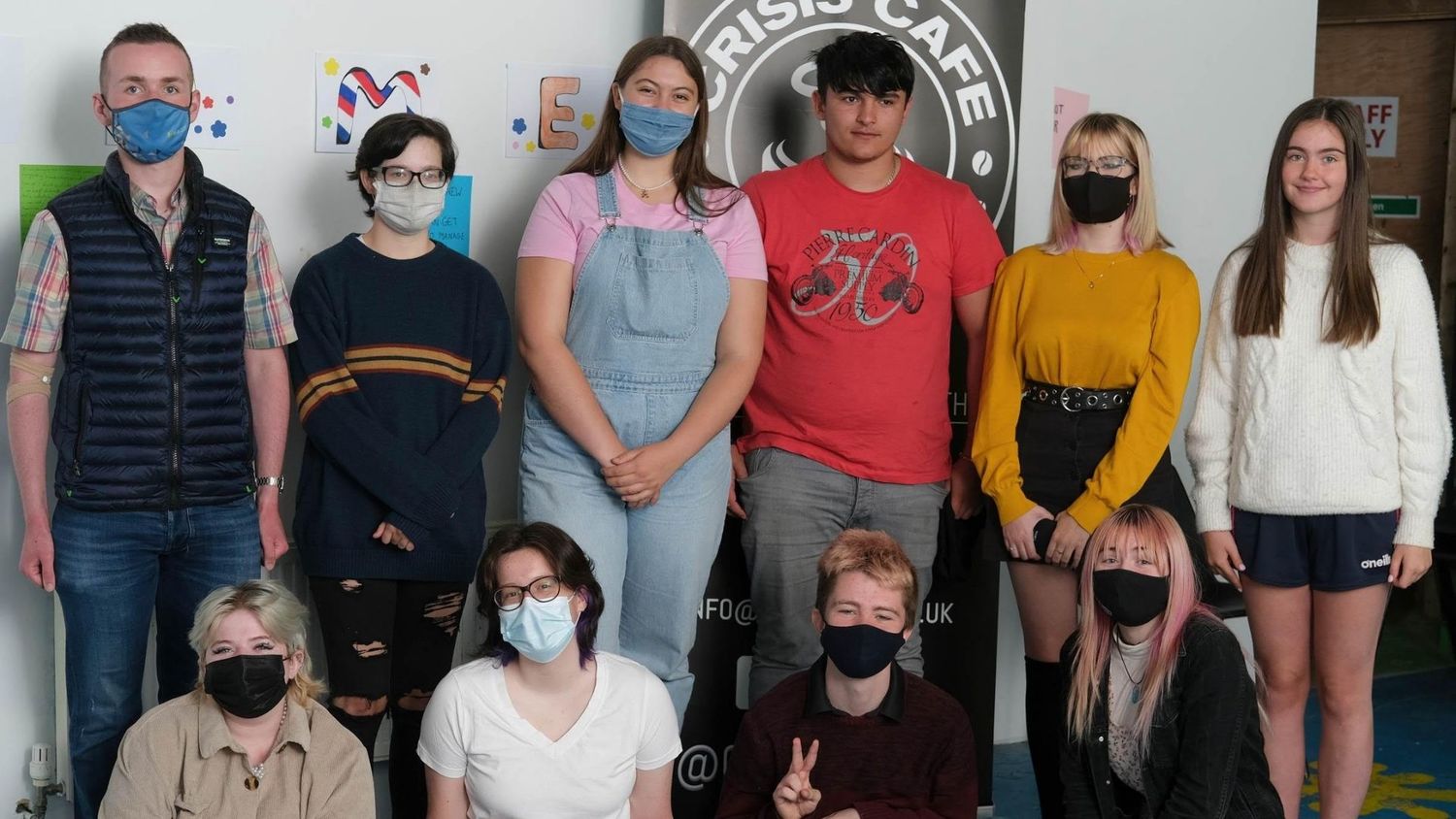
Your Stories
“No Judgement at the Crisis Cafe”
5 Aug 2021
The Foundation was delighted to hold their first physical Seeing Is Believing event this week as some of the team visited Crisis Cafe, Newry to meet the young people empowering change.
The Crisis Café, a social enterprise allows young people to access facilities that help safeguard their mental health while interacting with people their own age. A safe and welcoming place for young people who find themselves in crisis or need of mental health support. The ethos of the Crisis Café is to maintain an inclusive space that is non-prescriptive but is facilitative in empowering young people to seek help in a safe and non-stigmatising way.
“I have never felt more heard as I do here at the Crisis Cafe. You switch off as you enter through the doors, there is no judgement, mental health issues are normalised, there is no shame.” Fionntán, Crisis Cafe Ambassador
Explaining how the event came about Louise Quinn, Crisis Café said
“The Crisis Café received funding from the Community Foundation. They were distributing funding from Comic Relief and New Needs and today we hosted a Seeing is Believing event for the Foundations staff to hear first hand the experiences of young people, the benefits of the Crisis Café and the difference it has made to the lives of young people in Newry.”
Speaking after their visit Michael Hughes, Head of Building Sustainable Communities at The Community Foundation for NI said
“The Community Foundation and Comic Relief feel privileged to have been able to invest in Crisis Cafe, helping them, to support young people who in turn support each other with their mental health. What we experienced today was powerful and thought-provoking, demonstrating the passion, skills and genuine goodness of young people in creating a more caring, safer and inclusive community in the Newry area. Crisis Cafe must be commended for giving young people these opportunities in a space where they know that there are no judgements, just possibilities.”
Louise adds “We got the Comic Relief funding to support digital poverty. It was looking at young people who didn’t have access to mobile phones or laptops, nothing to do their homework on, or connect with friends, therefore impacting their mental health. Young people’s lives is online and social media, so really we were creating a space for them where they could come in and use the laptops and do their homework or print things off or use the internet if they didn’t have that at home, but while they came through the door to do that they could also access one to one mental health support as well.”
“When there’s digital poverty, there’s going to be poor mental health, they’re interlinked,” Louise explains.
The funding supported the Crisis Cafe to buy digital cameras through which they completed a photo art programme learning to use the cameras and portraying mental health through the lens. Aiming to eliminate stigma, normalise mental health issues and encouraging those when need help to reach out.

